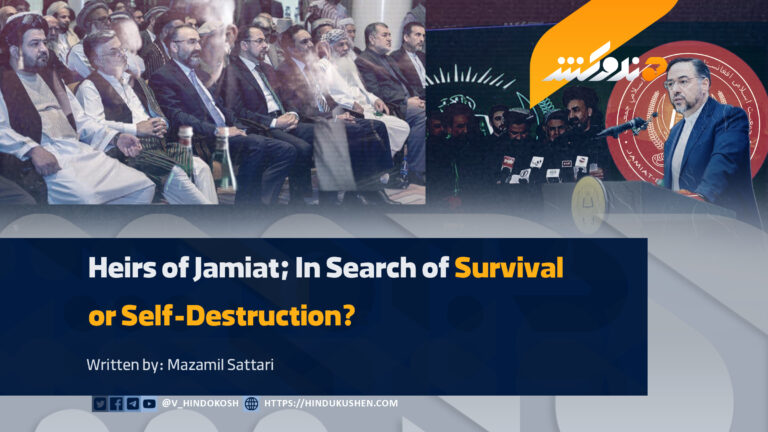Ever since the Soviet Union tasted defeat in Afghanistan and fled the country, leaving an indelible stain on its colonial history, it has not held any fond memories of Afghanistan. This land will always be remembered by them with “disgrace” and “dishonor.”
This very fact has led to Russia becoming one of the current government’s official recognizers and even taking a leading role, because it has clearly and certainly realized that there is no way to engage with the Afghan nation except through reconciliation and peace.
But this is only the outer layer of the issue, and it appears this way to outsiders. From the time the Soviet occupiers left Afghanistan, the Afghan nation has faced a crisis of disunity, division, and fragmentation. The seeds of discord sown among them have grown like the magic bean of fairy tales, and its stalk has only become stronger.
In the post-Soviet era, to form a unified government and compensate for the years of destruction and ruin, all parties and forces formed a coalition. The decision was that, until a final decision could be made to establish an inclusive and unified government, the leaders of the groups and parties would take turns in leading the country, and after their term ended, they would vacate the seat for the next leader.
In this way, instead of unifying into a single body, the first nucleus of parties and forces transformed into powerful, domineering groups with their own particular followers, and from that moment, this party-making and Jamiat-worship reached its peak.
Although today, there is no place left for parties and factions within Afghanistan, and all the opponents who are members of such groups live abroad, these very individuals—led by a number of superficial, incompetent, and prejudiced figures—still dream wet dreams and occasionally try to show themselves through gatherings and conferences. But this henna has lost its color, and this apple has rotted.
What stands out most within Jamiat today is division, disunity, futile efforts, and unhealthy competition to remain in the leadership circle of the group.
Even if the price of this symbolic power struggle is murder, violence, and conspiracy—because what has fueled the thriving market of intrigue among the members of Jamiat is the preservation of personal interests, imposition of individual whims, and false display.
Such practices no longer have any buyers in Afghanistan, and the blood on the faces of such individuals has left them disgraced before the nation. Nevertheless, the leadership of Jamiat continues to clash over leadership and the seizure of its throne, showing no hesitation in using pressure and force against one another.
Witnessing such scenes from seemingly educated and respectable individuals—especially when considering their potential leadership and management during any hypothetical return to power—is truly regrettable and beneath the dignity of the informed.
Upon search and deep consideration, it can be deduced that the members of Jamiat are willing to do anything to ensure their survival, with no limits imposed on themselves in this regard—because their interests take precedence over everything else, even if it means trampling on sacred values, violating principles, and breaking laws.
Note: The articles, essays, and comments published by the Voice of Hindukush only reflect the views of the authors & writers and do not necessarily represent the agreement of the Voice of Hindukush.




